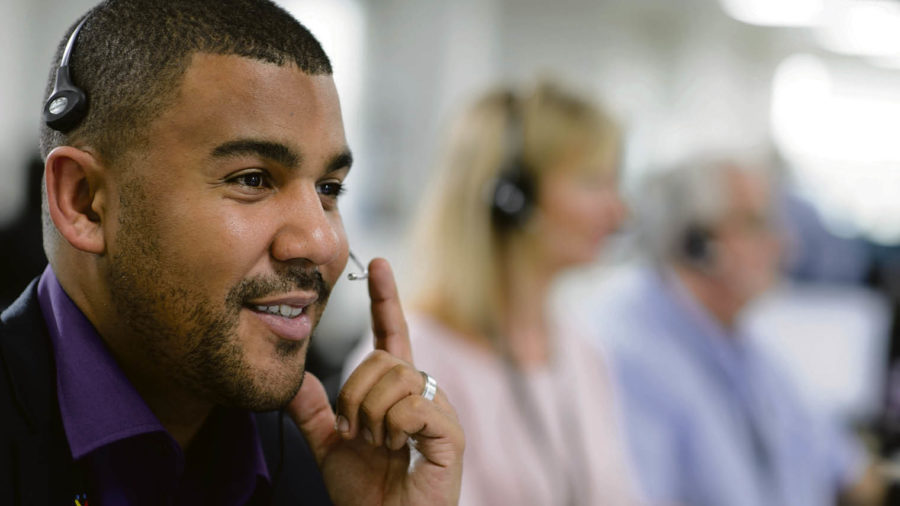The British insurance industry is highly competitive, possibly one of the most competitive markets for any financial services product. Switch on your television and you will not only see commercials from insurers trying to win your business, but also from different price comparison sites each offering easily to compare various insurers.
In competitive markets such as this, every advantage matters. I believe deeply that being a more diverse organisation can be a major benefit. Let me explain why and what we are doing about it.
Our team consists of around 10,000 people responsible for brands including Direct Line, Churchill, Privilege and Green Flag, collectively making us the leading insurer of homes and cars in the UK. Success depends upon us mastering a huge diversity of skills from car panel beaters to actuaries, empathetic front-line staff to mathematicians working out how to better model risk and fraud, and digital marketing experts to loss adjusters helping customers with claims.
When it comes to finding the best talent in the market for these various roles, it stands to reason that we would want to draw from the biggest possible pool and that is the first benefit of diversity. Just as any company would be foolish to only select people whose birth years were even numbers, for example, it needs to make sure it is drawing upon the talents of all groups and communities to broaden scope.
There is some effort required to access this full pool of talent. Insurance is an industry that tends to come with a certain “male, pale, stale” image that may put off some applicants, while some potential employees do not know anything about insurance or anyone who works in the industry.
Current demographics can perpetuate this as candidates are recruited for previous insurance experience and all too often people tend to hire in their own image. We are putting in the effort to fix this. For example, to make sure the 70 people joining our graduate programme were diverse, we worked with organisations to help us access outstanding young people from under-represented and under-served communities.
In recent years, we’ve been particularly focused on gender parity within our senior population. When hiring at more senior levels, we have repeatedly sent back all-male candidate lists from headhunters and asked them to try harder. In most cases they have then gone on to find outstanding female candidates, whom we have ended up hiring on their merits.
We have also signed up to the government’s Women in Finance Charter. We will increase female representation in senior management to 30 per cent by the end of 2019, while specifically identifying ten talented females at middle management level who will be formally developed for their succession potential next year. We are equally focused on other aspects of diversity, such as working families, race, religion, disability and carers.
The next opportunity is to make sure we get the most from our diverse population. That means creating a culture in which different perspectives are sought and listened to, in which people do not feel compelled to fit their style or interests to a corporate stereotype and in which we try to let people flex their working life around their roles as parents or carers.
New initiatives include piloting the ability for call centre staff to answer customer inquiries from home and working with a cross-company initiative called Creating Inclusive Cultures to identify and harness the competitive advantage of diversity and inclusion in the northern region of the UK.

We have also put in place company-wide initiatives to make sure we tap into the ingenuity of our people and get honest feedback on how we are doing. Through elected employee representatives from the front line, every three months I receive direct, personal feedback on how we are doing.
Our Ideas Lab allows anyone in the company to post ideas, have their colleagues’ support and receive a share of the financial benefits when the idea is launched. Finally, all our front-line colleagues are trained to identify their own personality type and pick up on the personality types of our customers so they can flex their styles accordingly.
Diversity is multi-faceted and for us that means being able to be yourself across all the many subtle dimensions of identity
It is also critical to make sure our managers are up to the task. Research from The Prince’s Responsible Business Network shows that where employees have worked with an inclusive leader, more than four in five had increased performance, motivation and innovation. Managing diversity will be a core part of our three-day residential course we’re putting our thousand-plus people managers through from next year.
Mentoring is an important part of how an organisation transforms itself to become more diverse, and can be hugely beneficial for both mentee and mentor. We have several programmes running both within and outside the company. For instance, we’re participating in membership organisation OUTstanding’s mentoring programme to reach out to the LGBT (lesbian, gay, bisexual and transgender) community.
There are some encouraging early signs that these efforts are working. Diversity is multi-faceted and for us that means being able to be yourself across all the many subtle dimensions of identity. We’re proud that 86 per cent of our employees tell us they can bring “all of themselves” to work at Direct Line Group. Our customer numbers are growing, and they are increasingly happy with our brands and service.
These results so far give us the encouragement to keep going and to pick up the pace. We are going to stay focused on increasing the diversity in our business. Not only is it the right thing to do, but I am convinced it will also continue to help us win in our highly competitive market.
For more information please visit www.directlinegroup.co.uk

